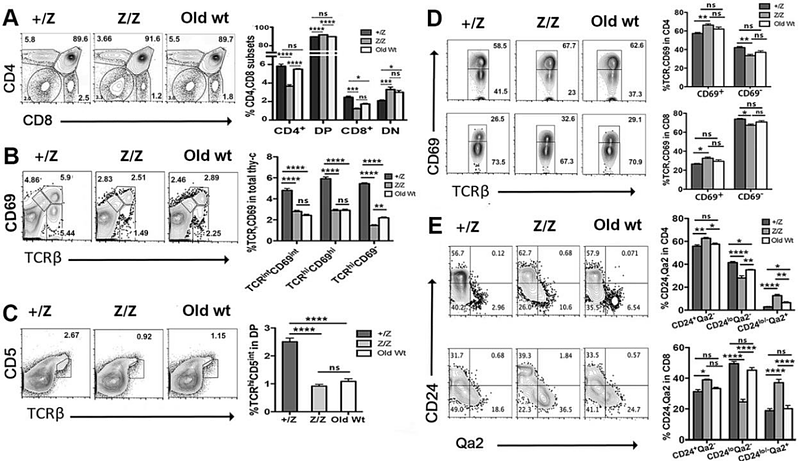Premature thymic involution in young Foxn1lacz mutant mice causes peripheral T cell phenotypes similar to aging-induced immunosenescence

Premature thymic involution in young Foxn1lacz mutant mice causes peripheral T cell phenotypes similar to aging-induced immunosenescence
Xiao, S.; Kang, S. W.; Oliva, K. E.; Zhang, W.; Klonowski, K. D.; Manley, N. R.
AbstractThe thymus is a primary lymphoid organ generating self-restricted and self-tolerant naive T-cells. Early in life the thymus starts to involute, resulting in decreased naive T-cell output which may be more self-reactive, leading to an increased prevalence of autoimmunity. A decrease in the transcription factor FOXN1 is an early event in thymic involution. Using the Foxn1lacz model, we studied how premature thymic involution affects the thymic microenvironment, thymocytes, and peripheral T cell immunity. We found that early thymic involution led to aged-like thymic epithelial cells that resulted in aged-like thymocyte phenotypes, with a significant decrease in CD4+ single-positive T-cells. We also observed severe lymphopenia in Foxn1lacz mice caused by the premature decrease in T-cell production, resulting in a peripheral T-cell phenotype similar to de novo aged peripheral T-cells. Moreover, following T cell receptor stimulation, Foxn1lacz peripheral T cells had reduced IL-2 secretion and strong initial IFN-g responses, resembling aged wild-type peripheral T-cell responses. Lastly, influenza response in Foxn1lacz had a reduction in some aspects of T cell responses to influenza infection, similar to thymectomized mice. Our study shows an independent and direct impact of premature thymic involution on both thymopoiesis and peripheral immune niches likely contributing to immunosenescence and inflammaging as observed in the elderly population.
